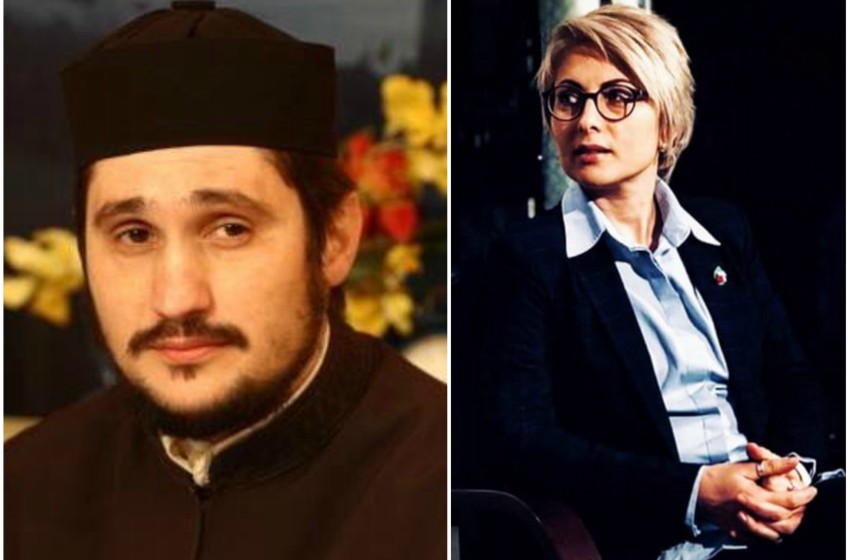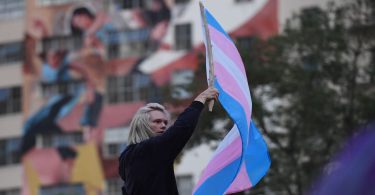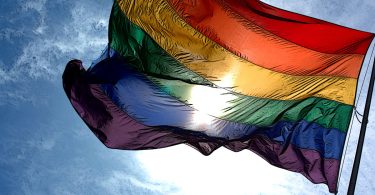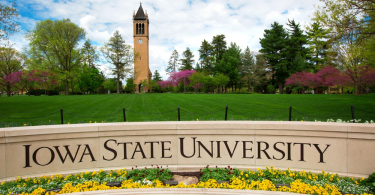Ghenadie Valuta (L) and Angelica Frolov. | Photo: Facebook & Supplied
An Orthodox Deacon in Moldova who threw holy water on a lesbian during a live television broadcast will have to pay her compensation and publicly apologize to her.
A court found Deacon Ghenadie Valuta guilty of ‘incitement to discrimination based on beliefs and signs of sexual orientation’ for splashing LGBTI activist, Angelica Frolov. The court ordered him to pay Frolov $715 in damages and to cover her legal fees.
The former Soviet Union country, Moldova is located near Ukraine and is one of the poorest countries in Europe.
The incident happened in 2014 during a televised debate. Valuta splashed Frolov to ‘help drive the impure spirits out of all representatives of the LGBT community’.
Frolov submitted a complaint to the Council on Prevention and Elimination of Discrimination and Ensuring Equality for incitement to discrimination and violation of the freedom of belief which also includes the lack of any religious beliefs.
‘He brought holy water and splashed me with it even when I said that I am not a religious person and asked him not to do it,’ Frolov told Gay Star News.
The Council ruled in favor of Frolov in June 2014.
Then she sued the Deacon to force him to publicly apologize. She also sued him to pay her moral damage and her legal fees, all of which comes to about $715.
The activist said she was happy with the Council and court rulings, because it shows ‘Moldovan law works’.
‘In our country the orthodox religion is very insolent. Some representatives of this religion consider that they can do whatever they want they’re not interested in the feelings and rights of other people,’ she said.
‘So, this decision is a good reminder about equality and the rule of law.
The Deacon’s LGBTI obsession
The Deacon has made it his mission to rid Moldova of its LGBTI community. He turns up to LGBTI Pride events to cover the participants with holy water in an attempt to cleanse them.
‘He is obsessed, indeed, he comes to our Pride march every year and splashes us and the place where we marching with holly water. I can’t say that he represents the opinion of all Moldovan people, but the level of homophobia and transphobia in Moldova is still high,’ Frolov said.
But not all Moldovans are anti-LGBTI.
Frolov is a lobbyist and program coordinator at Moldova’s only LGBTI organization, Gender-Doc M. She says its their educational programs that have helped shape the positive view of LGBTI people in the country.
‘At the same time, there are more and more people who are supportive and friendly, we believe that main reasons for this are possibility of Moldovan citizens to travel to European countries and our social information campaigns,’ she said.
Valuta has a different version of events and plans to appeal the court’s decision.
‘Persecution has begun. Lying has been legalized. There’s a video where it’s clear that I didn’t sprinkle Holy Water on this lesbian. But DPM [Democratic Party of Moldova—O.C.] justice was, to the joy of liberals and LGBT creditors, on their side,’ he wrote on the Pro Ortodoxia blog, an organization which he heads.
‘That’s how it will be with everyone who won’t tolerate sin. We’ll be getting prison sentences soon. But we will not give up.’
LGBTI rights in Moldova
According to Frolov many LGBTI people in Moldova keep their gender identity and/or sexuality a secret. That’s even though same-sex activity is legal and the country has laws banning discrimination based on sexual and gender identity.
‘Usually LGBT people prefer not to be open, because it is a risk to be rejected by family, friends and colleagues. At the same time there are many cases of homophobic and transphobic hate crimes, hate incidents and discrimination,’ Frolov said.
But she is clear that LGBTI people need to keep up the fight for themselves. Her legal wins against the Deacon show the country is open to protecting the LGBTI community.
‘We should protect our rights and freedoms, even when we think it does not work. No one will change this world for us,’ she said.
‘And I know now that it is possible to win a case against religious leader even in a very religious country.’







